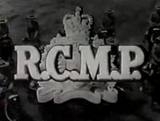In 1959-60, the distinguished Quebec actor Gilles Pelletier (who had earlier appeared in Otto Preminger’s The 13th Letter and in Alfred Hitchcock’s I Confess) came to Ottawa to shoot 39 episodes of the R.C.M.P. (Royal Canadian Mounted Police) television series, coproduced by Crawley Films, the Canadian Broadcasting Corporation and the British Broadcasting Corporation.
Executive producer F.R. “Budge” Crawley cast Pelletier as Corporal Jacques Gagnier, a Mountie working at a detachment in rural northern Saskatchewan. Interiors were shot on a brand-new soundstage near Ottawa at Old Chelsea, Quebec. (The studio no longer exists.) Exteriors were filmed in nearby Aylmer, Quebec, and in Outlook, Saskatchewan, which stood in for the fictional western town of Shamattawa, the center of the action of this (then) contemporary adventure series.
Casting a Québécois in the lead role was considered a gutsy move at the time, but Crawley was ahead of the curve in acknowledging the “French fact” on Canadian television, according to Pelletier. (Crawley went on to produce the Oscar-winning 1975 documentary The Man Who Skied Down Everest.) Co-starring in R.C.M.P. as Gagnier’s sidekick Constable Bill Mitchell was Don Francks, later a series regular on La Femme Nikita and co-star in Todd Haynes’ Bob Dylan “biography” I’m Not There.
With all that talent on board, why did R.C.M.P. only last one season? The show was well produced. Crawley partnered with the CBC, the BBC, the Australian Broadcasting Corporation and figured it would be a snap to break into international TV markets, especially in the United States. R.C.M.P. was a crisply-shot, realistic and sometimes extremely violent crime drama which stood in stark contrast to the usual stagebound and fusty Canadian television programming of the time. Influenced by the European neorealist school of filmmaking, the show had the look and feel of a documentary, very convincingly conveying the dismal Canadian ambience (especially in wintertime) and the homegrown criminal element of small-town Canada. R.C.M.P. more than held its own against similar U.S. TV fare.
According to Pelletier, what was overlooked was the fact that the American TV networks, distributors and producers operated like a closed circuit. They weren’t interested in buying a foreign TV series unless they had a hand in its production from the word “go”, and Crawley wouldn’t allow that. He said if they had that kind of control, R.C.M.P. would lose its distinctively Canadian cachet and be like any other American-style series.
But Crawley had to compromise a bit. He hired a Hollywood veteran as head of production – Bernard Girard, who had directed several episodes of Bat Masterson and Adventures in Paradise and would later helm the 1966 James Coburn crime comedy Dead Heat on a Merry-Go-Round and the mature star shocker The Mad Room (1969) with Stella Stevens and Shelley Winters.
Crawley hoped that Girard’s involvement would help get R.C.M.P. on a U.S. network, but it still wasn’t enough American participation to satisfy the network executives down south. They preferred to invest in a series, own it completely and broadcast it. So R.C.M.P. wasn’t bought by an American TV network, but instead syndicated, playing on stations across the U.S. Unfortunately, syndication wasn’t anywhere near as profitable as a regular network timeslot would have been.
Among the actors brought in from the States to boost the series’ prospects south of the 49th Parallel were Nancy Marchand (Marty – 1953 TV version with Rod Steiger – and later a series regular on Lou Grant and The Sopranos), David White (Sweet Smell of Success, Bewitched), Richard Davalos (who played James Dean’s brother in East of Eden) and John Kellogg (Twelve O’Clock High, Gorilla at Large).
Canadian actors who were to become well known also guest starred on R.C.M.P.: among them James Doohan (soon off to Hollywood and immortality as Scotty on Star Trek), Jack Creley (Dr. Strangelove, Videodrome), Douglas Rain (the voice of HAL 9000 in 2001: A Space Odyssey), John Vernon (Point Blank, Topaz, Animal House), Shane Rimmer (Space: 1999, The Spy Who Loved Me) and Lloyd Bochner (Tony Rome, The Detective).
R.C.M.P. ended abruptly in October 1960. Over the years, reruns of the short-lived series garnered fans all over the world, though it has rarely been rebroadcast in its country of origin. One can wistfully hope that R.C.M.P. will someday be resurrected in pristine condition on DVD.
Crawley died in reduced circumstances in 1987. Pelletier, now approaching his 87th birthday, has yet to retire from acting: he recently co-starred with Diane Kruger and Emma de Caunes in the apocalyptic fantasy L’Âge des Ténèbres (The Age of Ignorance), filmed in Montreal. In 2011, Pelletier starred in a short drama entitled Mauser, in which he plays elderly Monsieur Ranger, a World War II veteran. Ranger meets a young delivery boy who is an avid follower of a video game inspired by the Normandy landings. This encounter will revive the old man’s painful memories of D-Day 1944.

